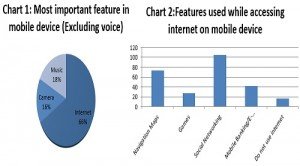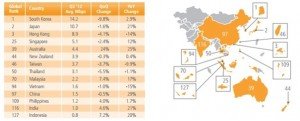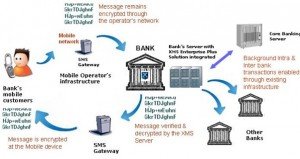The year is 2020. I just attended the shareholder board meeting of Microsoft using my 3D hologram projection while attending a wedding in Mumbai. Incidentally though, I was not the only one. In fact, the meeting was taking place in the headquarters of the company, while none of the directors was even present! If the rate at which technology is developing is properly analysed, it can be safely assumed that the day when physical presence in any occasion will become an outdated fashion might be much earlier than that. Welcome to the age of mobility: The period in the chronology of time where man has become the most versatile creation of God and entered into the phase of Glocalisation 2.0.
If we look into the history of Glocalisation, its roots can be found in the much familiar term Globalisation. According to Thomas Friedman in his book “World is Flat”, Globalisation can be divided into distinct phases: Globalisation 1.0 began with the advent of the crusades, which brought to the forefront the two different civilizations and customs with each other. While it created enormous amount of destruction, it also created awareness about each other’s technological progress. The second phase can be characterised by the start of the renaissance period. The third and the most significant can be assumed to be start of colonisation and ending with the Second World War. The fourth and the current, also referred as the age of globalisation, can be seen as a mere continuation of these three periods. But the more important question that needs to be addressed here is why did this happen in the first place? Was it merely the disparity in technology that enabled one class of people to dominate over another? Or was it the beginning of the sharing of technology to create a more liberal and uniform world? For instance, India the global super power of service industry is the largest English speaking nation in the world in terms of population. The real credit for this success should go to its former colonial masters, the British Raj, who introduced the language in the subcontinent to create a more level playing economy where both east and west had similar aspirations and goals.
Incidentally, mobility too has similar objectives: it has enabled businesses to compete across geographical and resource barriers. The bigger question though is: Will increasing mobility change the rules as well by which individuals compete and collaborate? Or perhaps it will create new ones?
The new rules of the game (or maybe rulers as well?)
The first mobile call was made in the year 1946, however the potential of mobile devices was first realised by John F. Mitchel of Motorola in the year 1973, indicating a lag of 27 years. Can we expect a similar duration from potential market estimation to practical implementation in the present era?
Ironically, leading cell phone manufacturers like Samsung, ZTE and Huawei all hail from Asian economies and not from US again signalling an end to the old system. Apple, the prominent US brand has its manufacturing base in China which enables it to compete with higher profit margins. So there is a clear shift in the manufacturing base of the devices of mobility. However can mobility be limited anymore to just the mobile devices?
Tablets with the ability of voice telephone are increasingly creating a new dimension and genre of devices that may eventually replace mobile phones entirely. In fact, the threat is not limited to mobiles alone, we may very soon be able to see entirely new products that can be considered as both PC and mobile killers. Even the definition of mobility can no longer be limited to few considerations. The internet and advanced technologies like 3G and 4G have created the possibility whereby the world is increasingly at our fingertip.
Facebook, often referred as the third most populous nation, is an increasing example of the new order mobility. Mobility and connectivity are synonymous to each other: if you are connected, you are mobile and if you are mobile you ought to be connected. Facebook essentially does exactly that. It shows you the live stream of what not only your friends are doing, but also live update of news happenings in the world. It provides the same level of connectivity, or perhaps higher, than what a mobile device provides, yet essentially it is just a website!
How do we use our mobility?
While most of us are having access to the World Wide Web, it is also interesting to note how many features we actually use in our mobile devices. As part of an online survey (Total number of respondents: 133) to analyse this preference, yielded some interesting results. The respondent group consisted in the age group of 18-30 (91% male, 9% female) post graduate students in India.
Only 66% of the respondents viewed internet as the most important feature in their mobile devices (excluding voice) while mere 30% of the respondents used mobile device for e-commerce or banking activities. Interestingly though the mobile data industry in India has grown by over 54% in between Dec 2011 and June 2012 according to a Nokia Siemens report and is expected to double by June 2013.

Linking economy with mobility
If we consider the average broadband speed in US which is at 6 Mbps versus China and India, the US is far ahead. In fact China ranks 97th while India is at an even poorer 116th in terms of broadband speed. Interestingly both these countries are going to challenge the US economy in the coming decade. South Korea occupies the global leadership position and we can clearly see its impact as it has a very strong economy despite a small geographical area.
 |
| Image source: Akamai .com |
The new governance model
Perhaps it is only a matter of time before voting physically in an election becomes irrelevant. The prevalent app market in android, iOS and now Windows8 will eventually have an app that will enable people to vote from their handheld devices in state elections. Governments instead of spending millions on campaigning will instead focus on leveraging the impact they can have on social media for free. In all, it will eventually create a more open society and enable better governance. But will it work like that?
If we take into account countries like Rwanda, mobility is perhaps the biggest form of empowerment that has taken place in the last decade. Even if we consider our own country, mobile penetration in rural India still remains at a low 33% as compared to urban India which stands at more than 180% ( implying 1.8 connections per person) whereas almost 70% of our population inhabit in rural India. Mobility can perhaps be the single most important link that can connect and integrate them.
A clear example in this direction can be seen in the story of Grameen phone. Founded as a joint venture between Grameen Bank and Telenor group, the mobile service provider has enriched the lives of over 140 million people by providing them the ability to network.
Are banks relevant?
Mobile banking has perhaps been one of the greatest innovations of this technological progress. A single sms can now help you in depositing or withdrawing money from anywhere across the world and the entire process takes place in less than fraction of a second. In fact mobility has led to digitisation of money: so the bigger question that needs to be answered is will paper money survive the end of the century?
In fact, just like gold was replaced by coins and later by paper money, perhaps mobility will lead to paper money being replaced by digital money where mere digits will decide the net worth of an individual or firm, a slight miscalculation can create havoc on the wealth created or destroyed !
However, this single innovation will make banks irrelevant that will eventually become virtual entities, after all if we are dealing with digital money, we will also need digital entities to handle the data making banks very similar to data warehouses. This same fate will also be met by organisations which will increasingly become work from home enterprises and focus on storing data on a cloud. However, will brick and mortar structures become irrelevant for conducting business?
 |
| Image source: mynetsec .com |
Perhaps not. During the dot com boom, it was widely expected that websites will be the future, but brick and mortar businesses continue to strive and survive.
Can we trust it?
Mobility has perhaps created the largest database on how we do and what we do. Moreover this data is being handled by private entities that focus on profits, so is our data really safe? The same concerns of privacy have been also raised against Facebook which has created a data pool on how we interact with people around us, a data centre that probably will emerge as the single biggest source on human behaviour in the history of mankind.
Humans will continue to get profiled on basis of their race and religion and might easily become a victim if such data becomes available in the wrong hands. Marketers will increasingly use every bit of private data that can be accessed making our lives public. While we may not become overnight celebrities, yet we will always continue to live under the shadow that someone is watching over us.
Another major impact that mobility has created is repercussions in markets of one part of world will have a ripple effect on financial markets all across the world: the post-2008 financial turmoil stands testimony to the fact. The pace at which information travels in the market create sentiments that may not have any relevance to the fundamentals.
The new age and new innovations
Mobility will increasingly assume new definitions in the coming century. Computer chips will be fitted to humans’ right at birth which will store all their data and will lead to the creation of humanoids who will themselves be living databases. The way we interact with data will also change greatly. New technologies like augmented reality will take precedence over existing innovations. Organisations will become irrelevant and instead nodes (humans) will work as profit centres. The few organisations that will continue to remain will increasingly become decentralised. For instance, the HR department will act as profit centre and will provide its services to other individuals and organisations, the manufacturing department may refuse to manufacture in-house product and lend its services to those offering it higher margins and so on.
Mobility is undoubtedly a boon to mankind. However, in the quest of this enhancement perhaps a time will come when the question of its survival may be posed by the same mobility it seeks to promote. Are we really up for that day?
You might like reading:
Marketing – A historical perspective and evolution with time !
Marketing is the social and organizational process through which individuals and groups obtain what they need and want by creating, communicating and freely exchanging products of value with each other. People define marketing in different ways based on their perceptions. It has evolved over time and has profoundly developed in terms of the thinking, the ideologies and the mindsets […]
Analysis of Tax reforms in Budget 2015
Proposal to reduce corporate tax from 30% to 25% over the next 4 years increase indirect tax. Implications: The proportion of tax payers is low in India and the black money is one of the major issues hindering the growth in India. So to have a better control over black money, government has reduced the corporate tax and is increasing […]






























